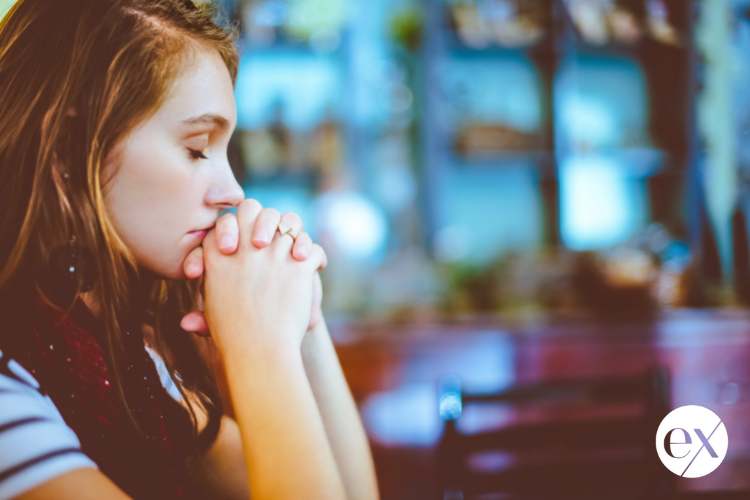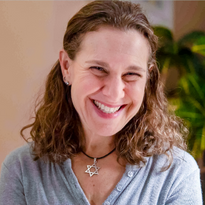
I learned as a child of divorce, and relearned even more powerfully from my own divorce, that divorce is not a one-time event with a clear beginning and ending. Divorce is an event in the life of a couple and family that continues to shape the many lives it touches as a result of the dramatic changes it unleashes.
Divorce isn’t something anyone “gets over”; it’s something we learn to live with and accommodate to over the many life events – minor and major – that occur beyond it.
Celebrating a child’s graduation or taking care of a sick child, navigating major life events like the remarriage or death of a former partner or their family member who used to be your family – all these life moments that continue to unfold are shaped, on some level, by the ending of your marriage.
Divorce also isn’t a private event that happens within the intimate space of our primary relationship. Our children, of course, are impacted most directly by our divorce. But our parents, too, and our siblings and friends are all affected by our untethering from our partner. As our life changes, so the relationships that fill it also naturally evolve.
When we show up in the world differently, when the framing that defines our lives and the ways we interact and intersect with others changes, so our connections to the people closest to us become recalibrated to a certain extent.
Having a child who’s a single parent may change the way older parents divide their time (sometimes even their money). Friendships between couples undergo some transformation when one set of partners uncouples. These are natural processes, if complicated sometimes.
But before those changed dynamics have a chance to settle, there is the business of the pain our choices might create for others.
Divorce is hard for, and sometimes hurts, our children. It might disappoint or worry our parents. It saddens our friends. The “rightness” of our decision to divorce is unrelated to the feelings it unleashes for the many other loves in our lives. Beyond the discussion of “whose fault it was” lies the reality of these feelings and our need to do business with how, sometimes in the search for our own happiness, we unavoidably, though reluctantly, cause others we care about to suffer.
One of the relationships that might suffer is our relationship to God – whatever and whomever any of us might mean by that word. Religious traditions have differing ideas about divorce.
While most express sadness at the dissolution of a marriage, some outright condemn it, which can cause deep conflict for people. And yet spirituality and faith can be such meaningful sources of comfort and healing. At some point, those of us who are connected to a religious tradition may find ourselves wrestling with failing to live up to the ideals of our communities and our God.
It might require revisiting our choice of where to hang our hat (which community best reflects our values), it might invite a reexamination, hopefully with the guidance of a skilled and compassionate pastor/clergy person of the texts and traditions around divorce that can be so alienating and hurtful. It may even require a new understanding of our own beliefs. There is much more possibility for these explorations within many religious traditions than is otherwise assumed. And in our age of individuality that drives so much of our choices, we’re finding more and more inspiration to take ownership of our spiritual lives in a way that brings us both comfort and integrity.
Far and away, for those of us who are parents when we divorce, the wrestling with the thoughts about how our kids handle our choices can be the most challenging for us, the most gut-wrenching. As we strive to provide them with the assurance of our steadfast love in whatever language and style resonates for them and feels genuine for us (“no, I will never divorce you!”), it’s important to strive to listen for the questions behind their questions, to really try to understand what’s causing them fear or anxiety about seeing the people who provided them with the most important sense of trust and confidence in the world undergo such dramatic changes.
We have to ask ourselves: how can I use this moment in my life and our family’s life to teach my kids some critical lessons about life and change? What tools does this moment enable me to put in their “life toolbox” that will help them face the inevitable changes that their own journeys will present to them?
One of the most important “tools” or lessons I’ve tried to share with my children through the ongoing reality of my divorce, and one that I hope will serve them as they consider their own choices in life and the changes they will undergo, is that authenticity, the yearning to live your truth, is not measured by consistency.
Those things often get confused for one another. Staying the course of your path, sticking to your decisions come what may, doesn’t make you authentic or secure your integrity. Those qualities are as dynamic as life itself. As our circumstances change, so do the ways in which we have to strive to reflect our truest selves. “Becoming” is a lifelong process; it’s what keeps us alive. Evolving as a person and embracing the changes that come along with that doesn’t make you a hypocrite. It makes you human. Striving to live your best and most dignified life against the backdrop of a continuously changing landscape is what generates authenticity.
Leave a Comment
You must be logged in to post a comment.










